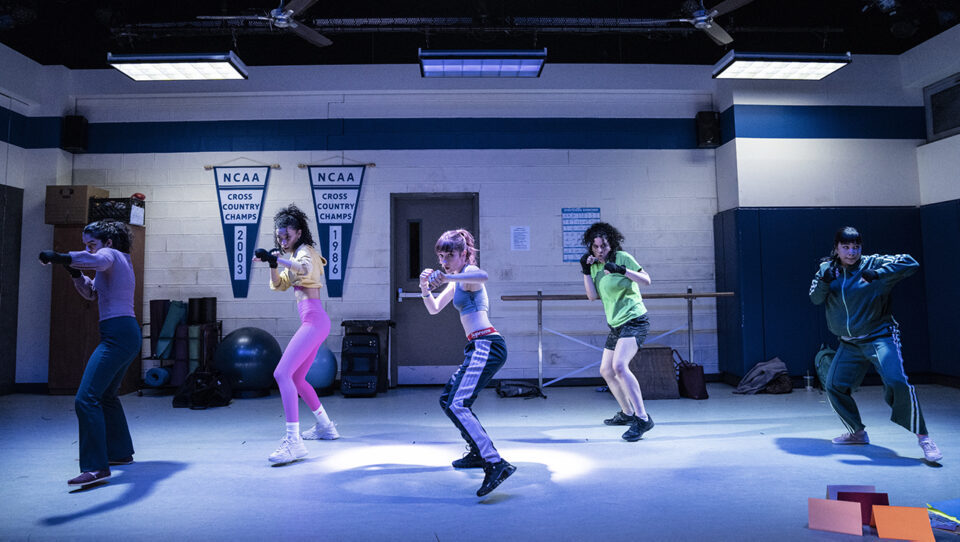By Stuart MIller . . .
When it comes to exploring their sexuality and identity, teens and young adults—especially young women—stand precariously on rapidly shifting ground, facing a barrage of mixed messages and inner desires. Safely navigating this landscape is, of course, made even more unfathomable for women by the ever-present threat of actual physical violence.
Lillian Padilla’s overstuffed but entertaining and thought-provoking How to Defend Yourself (now playing at New York Theater Workshop through April 2) largely takes place in a college gym where Brandi (Talia Ryder), a student with martial arts expertise, has organized an ad hoc self-defense course after her sorority sister was raped and brutalized by two men at a party.
The class initially consists of Brandi’s friend Kara (Sarah Marie Rodriguez), and freshmen Mojdeh (Ariana Mahallati) and Diana (Gabriela Ortega) who are friends and Nikki (Amaya Braganza), while two guys Andy (Sebastian Delascasas) and Eggo (Jayson Lee), come to help out. The dynamic cast is largely excellent. (Padilla also co-directs with Steph Paul and Tony-winner Rachel Chavkin.)
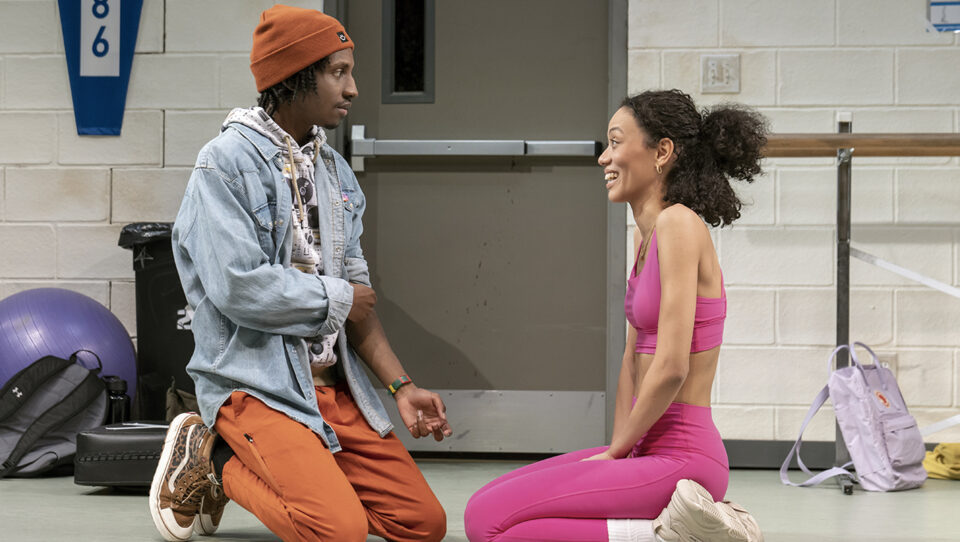
Despite the seriousness of the subject, the play is often quite funny and brims with life, successfully capturing the enthusiasm and insecurities of girls and boys striving to become women and men. The play also features interludes set to music. In one, the students work on their fighting form; in another, Eggo reveals a hidden side of himself dancing to Beyonce’s “Formation.” Each of these adds another layer of emotional resonance.
How to Defend Yourself is packed with ideas as personal revelations fly throughout. There’s definitely too much here for a 100-minute play—none of the seven characters are neglected, yet none are fully fleshed out. Some intriguing ideas—like Diana’s experience at a gun range or the moment when she kisses Mojdeh, skitter past without enough exploration.
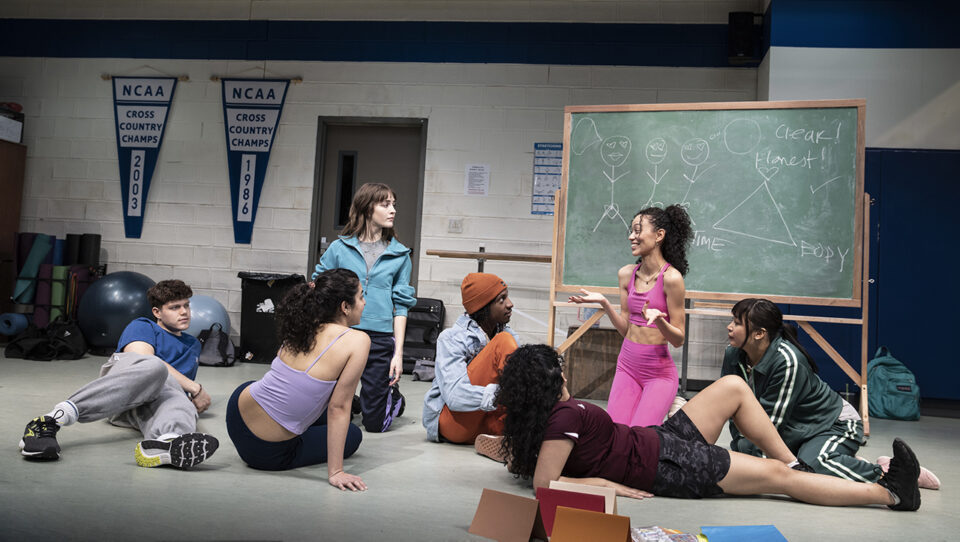

Still, that seems fitting for college, a time for talking about everything and trying to figure out what matters, as you try on different identities to find the one that might fit best for adulthood.
And the ideas examined here matter. Kara and Brandi, who each have a pasted a thin veneer of authority and agency over their wounded selves, argue about control and surrender during sex, with Kara undermining the mission of the class by talking about craving being taken, even violently.
That creates dilemmas for the other half of the equation, too, as Eggo insists after he tried being gentlemanly and consent-seeking with one girlfriend who then dumped him because she wanted to be surprised. “What’s the difference between sex that is a SURPRISE and assault? Cuz I don’t want to be the surprise that winds up in jail,” he says.
Mojdeh is so eager to lose her virginity that she is willing to surrender some of her pride and lies to her friends and herself, making a demeaning experience sound erotic and desirable, in part to appear cool enough to be invited into Brandi and Kara’s sorority.
Diana, who has been sexually active and maybe even reckless since her early teens, feels betrayed by Mojdeh’s self-deprecation, even though much of her own behavior is bluster and bravado. (In the opening scene, she tells Modjeh, “I wish girls fought more. Like beat the shit out of each other for fun. I wish that was, like, a socially acceptable thing to do. Fight club, you know? If it was me and you, I think I’d win.”)
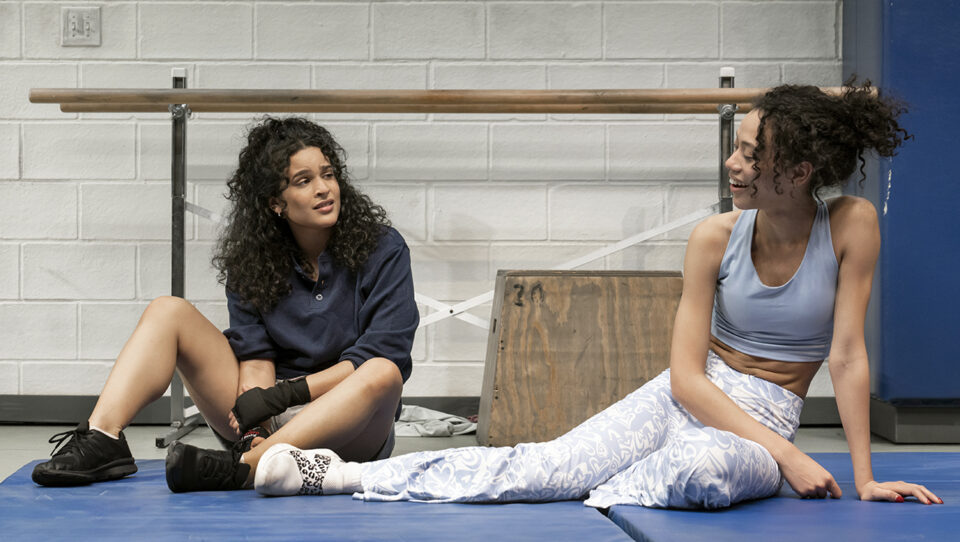

Padilla does an excellent job of subverting expectations. Andy blithely declares, “We do not get down with that rape s—. Full stop,” while mansplaining with politically correct platitudes. And without an iota of self-consciousness, he describes wanting to rename his fraternity’s post-assault party “Workout Bros and Yoga Hos.” Still, he’s haunted by his reaction to a crucial moment at the party where the rape occurred. And after being in the class, he sadly but fully realizes, “You’re learning to protect yourself from . . . from guys who look like me.”
Nikki’s story also seems obvious at first: she’s meek to the point of seeking invisibility and is willing to submit to men’s wants with little thought of her own—until the class enables her to burst out of her shell. However, while Brandi can teach martial arts moves, she is ill-equipped to prepare the women for the psychological components of a world still often ruthlessly ruled by men . . . a lesson Nikki learns all too painfully.
After Nikki’s incident, the play rushes through the denouement and an overwrought soliloquy for Brandi—as her personal trauma rushes forth and seizes her—to get to a high-concept ending. While a more naturalistic ending might have been more effective, this finale—in which the set suddenly transforms and the students travel first back to high school and then to the innocence of childhood—is still moving.
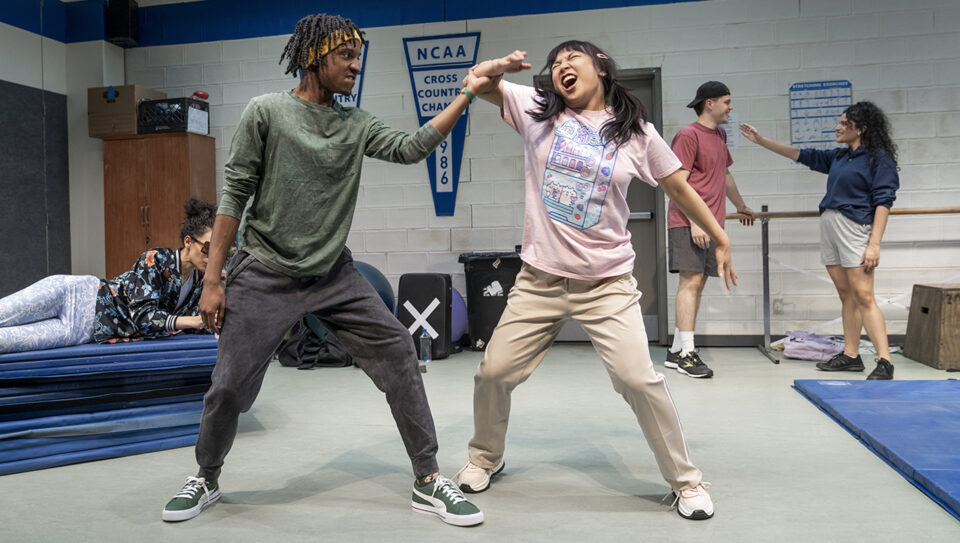

I saw this play two days after seeing Jessica Chastain in A Doll’s House. Both plays take on the idea of women awakening to the realities of female disempowerment and the possibilities of seizing power in a culture that still actively seeks to limit women’s agency. Broadway offers star power in a stripped-down and cerebral attempt to bring the past into the present. New York Theatre Workshop provides a frankly sexual, raw and messy option as it examines the present as a way to imagine a better future. How To Defend Yourself is, by far, the more powerful and memorable production.
How To Defend Yourself. Through April 2 at New York Theatre Workshop (79 East 4th Street, between The Bowery and Second Avenue) 100 minutes, no intermission. www.nytw.org
Photos: Joan Marcus
Cover Photo: Ariana Mahallati, Sarah Marie Rodriguez, Talia Ryder, Gabriela Ortega and Amaya Braganza


